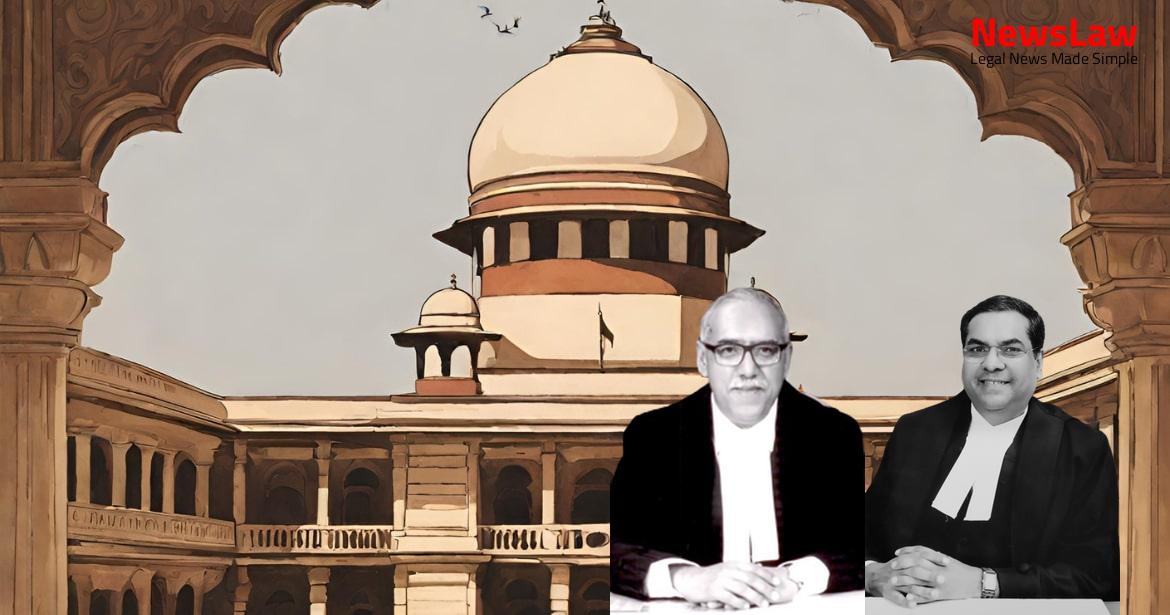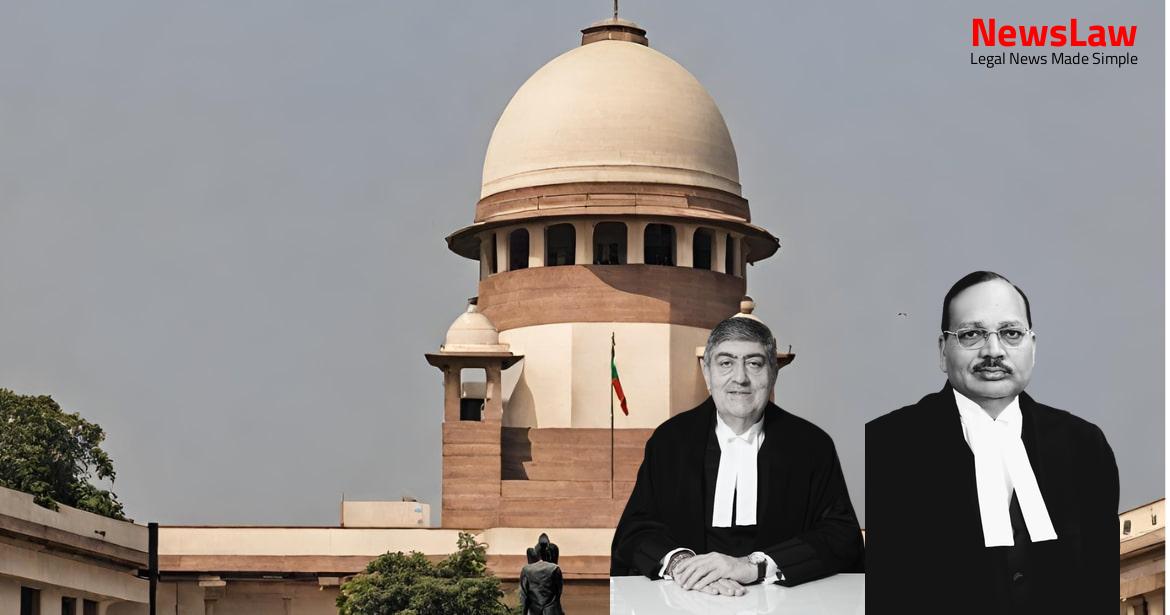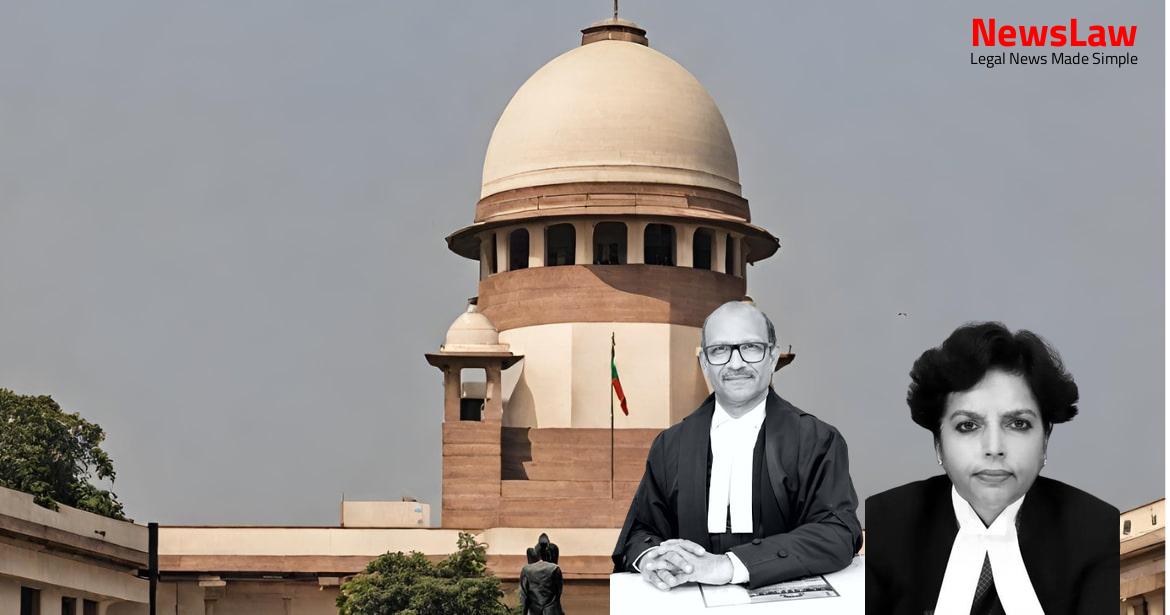In a significant development, the Supreme Court has issued a landmark judgment concerning the award of bonus marks in teacher selection cases. The case, involving the Full Bench decision regarding bonus marks for candidates seeking appointment as Primary School Teachers in Zila Parishad, Rajasthan, has far-reaching consequences for public employment in the state. Stay tuned to learn more about the key takeaways from this crucial ruling.
Facts
- The accused was charged under Section 302 of the IPC for the murder of his wife.
- The accused claimed that his wife’s death was a suicide and not a murder.
- Forensic evidence presented by the prosecution indicated that the death was not a suicide.
- The trial court convicted the accused based on circumstantial evidence and witness statements.
- The accused appealed to the High Court, which upheld the trial court’s decision.
- The accused then filed a Special Leave Petition in the Supreme Court, challenging the High Court’s decision.
- Leave was granted by the Supreme Court to hear the appeal.
Also Read: Succession of Properties: Rule of Primogeniture vs. Law of Rulership
Arguments
- In Manmohan Sharma’s case, reference was made to Danveer Singh’s case where the writ petition was allowed and the order became final as it was not challenged further.
- Certain decisions of the Rajasthan High Court granted reliefs to writ petitioners who did not file before the cut-off date set by the Supreme Court in Kailash Chand Sharma’s case.
- Some of these decisions were made after the Manmohan Sharma’s case, disregarding the importance of authoritative pronouncements of higher courts.
- The conflicting opinions in different High Court decisions have led to uncertainty and prolonged litigation for candidates since 1999.
- Respecting and following the decisions of higher courts is crucial to avoid unnecessary and speculative litigation.
- A number of impleadment applications were filed by aspirants waiting for a favorable outcome in the closed litigation, but they were dismissed.
- It was argued that the benefit of vacant posts should be extended to the applicants, but the court did not agree citing Kailash Chand Sharma’s and Manmohan Sharma’s cases.
- An attempt was made to draw attention to the case of Neeraj Saxena, where the State Government’s writ appeal was dismissed due to delay and inaction.
Also Read: Enforcement of Foreign Award: Case of Oscar Investments Limited and RHC Holding Private Limited
Analysis
- The Full Bench of the Rajasthan High Court declared the award of bonus marks to candidates seeking appointment as Primary School Teachers in Zila Parishad of various districts in Rajasthan unconstitutional.
- This decision was based on the reasoning that any weightage or advantage based on place of birth, residence, or being a resident of urban or rural areas is not permissible in public employment in a State service.
- A similar earlier Full Bench judgment in the state struck down similar stipulations for bonus marks in the selection of teachers in Grade II and Grade III.
- In a previous case, where bonus marks were awarded, no relief was given to the petitioners as they did not have a chance of selection on merit even without the bonus marks.
- The Full Bench in the previous case held that no relief could be granted to petitioners who were not entitled to bonus marks for being residents of an urban area.
- The doctrine of res judicata was distinguished from the law of precedent in the previous case.
- The controversy was settled in a previous decision of the Court in the case of Manmohan Sharma v. State of Rajasthan.
- Several writ petitions were filed after the Full Bench decision, but the Court held that candidates who had not filed petitions before a certain date were not entitled to appointment after the recalculation of marks excluding bonus marks.
- Exceptions were made for cases where the principle of res judicata applied.
- The Court applied the doctrine of prospective overruling and balanced competing claims in the case, partially applying it in certain paragraphs of the decision.
- The judgment discusses the implications of the doctrine of prospective overruling in the context of appointments made before and after 18th November 1999.
- It highlights the importance of the date 18th November 1999, which was pivotal in determining the applicability of the relief granted to writ petitioners.
- The distinction between Category I and Category II writ petitions filed before and after 18th November 1999 is discussed, emphasizing the need to balance competing claims.
- The judgment clarifies that appointments made before November 18, 1999 were left untouched, while writ petitioners who moved the High Court before that date were entitled to be considered afresh on merit.
- It rejects the argument for parity and similar treatment, stating that wrong appointments should have been challenged promptly and that belated challenges do not confer any rights.
- The importance of res judicata and the application of precedent in the legal context are highlighted with reference to the cases discussed in the judgment.
- The decision in Naval Kishore’s case is specifically addressed, noting that it resulted in re-computation of marks for some candidates who approached the High Court after November 17, 1999, despite the Kailash Chand Sharma’s case judgment.
- In Manmohan Sharma’s case, the State filed an affidavit refuting factual submissions made at the Bar.
- The Bench in Manmohan Sharma’s case observed that there was no need to expand the scope of the directions issued.
Also Read: NGOs Substantial Financing Case: Supreme Court’s Judgment on Public Authority Definition
Decision
- All pending writ petitions and appeals before the High Court will be decided based on the decisions in Kailash Chandra Sharma’s, Manmohan Sharma’s cases, and the present matter.
- Condonation of delay will be considered if justified and satisfactorily explained.
- The appeals and pending applications are disposed of according to the stated terms.
Case Title: THE STATE OF RAJASTHAN Vs. NEMI CHAND MAHELA .
Case Number: C.A. No.-003873-003873 / 2010



